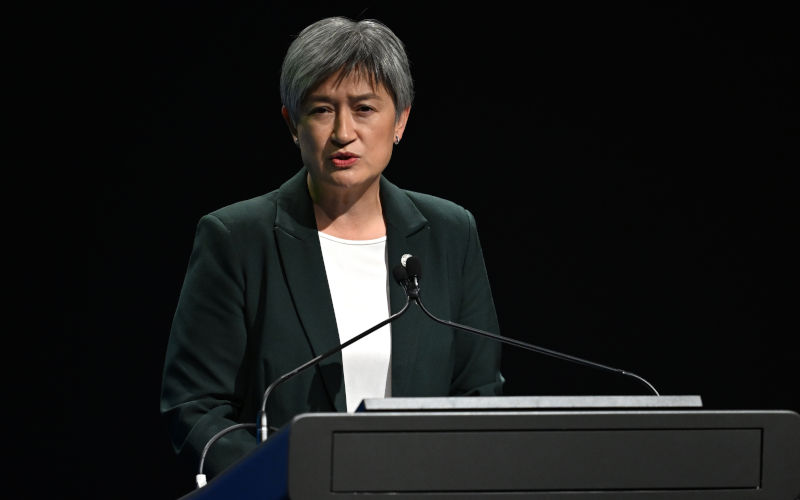Penny Wong rattles the China can
March 5, 2024
It doesnt take much to encourage Penny Wong, sporting her deeply concerned frown, to rattle the China can a can she gave a good shake to yesterday.
But before she did the rattling, the resident conjuror, Mike Burgess, who runs ASIO, gave us a weeks worth of spy mysteries only for us to find via a leak to the Herald and The Age that the mysterious state running the spying was, you guessed it, China.
The kabuki show runs thus: Burgess drops the claim, then out of nowhere, the Herald and The Age miraculously appear to solve the mystery - the villain, as it turns out, is China after all.
The anti-China Australian strategic policy establishment was feeling some slippage in its mindless pro-American stance and decided some new China rattling was overdue.
When the Albanese government was elected, the first decision it should have taken was to dismiss Burgess, Andrew Shearer and Mike Pezzullo. In the event, Pezzullo shot himself but, unbelievably, Burgess and Shearer still remain at the centre of a Labor governments security apparatus. This says more about the government than it says about them.
These people display utter contempt for the so-called stabilisation process that the Prime Minister had decided upon and has progressed with China. And will do anything to destabilise any meaningful rapprochement. Burgess runs the primary goon show while Shearer does all in his power to encourage Australia into becoming the 51st state of the United States.
Yesterday Anwar Ibrahim, the Prime Minister of Malaysia, dropped a huge rock into Wongs pond by telling Australia not to piggyback Australias problems with China onto ASEAN.
Anwar is making it clear, Malaysia for its part, is not buying United States hegemony in East Asia with states being lobbied to ringfence China on the way through.
That difficult task, the maintenance of US strategic hegemony, is being left to supplicants like us.
What this weeks ASEAN meeting makes clear is that Australia and Australian policy is at odds with the general tenor of ASEANs perceived strategic interests that is, interests which relate to China and the United States and relations between them.
Statement by PJ Keating, March 5, 2024.

